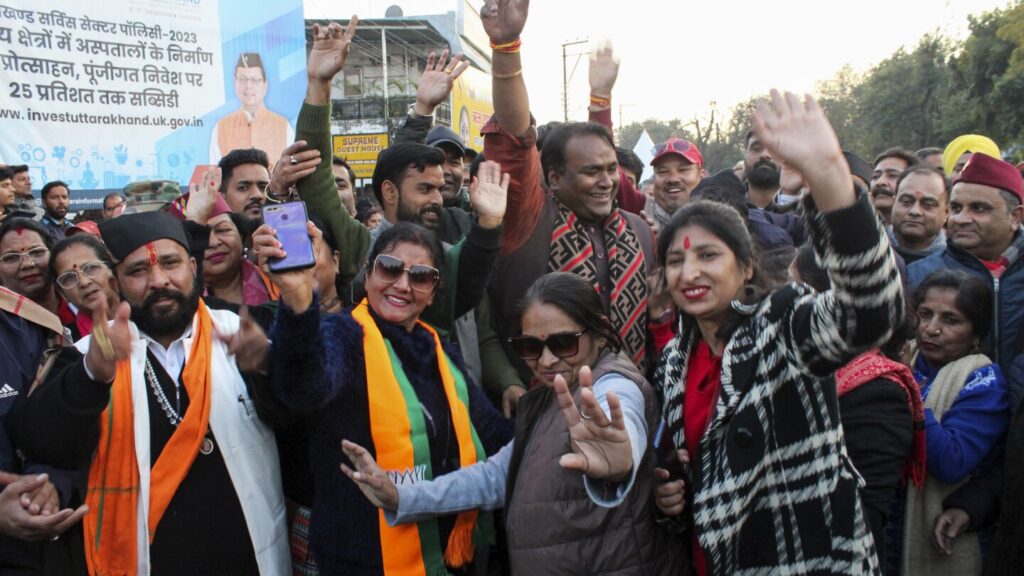LUCKNOW, India (AP) — Indian states have approved unprecedented uniform norms on marriage, divorce, adoption and inheritance for Hindus, Muslims and other religious communities under a new law. It also requires cohabiting couples to register with the government or face penalties. .
Lawmakers in the northern state of Uttarakhand passed the bill on Wednesday, with approval by the state governor and the president of India seen as a formality before it becomes law in the state. Muslim leaders have opposed the Uniform Civil Code, enacted by Prime Minister Narendra Modi's Hindu nationalist party, saying it interferes with their country's laws and customs on such issues.
India is the world's most populous country with a population of over 1.4 billion people, approximately 80% Hindu and 14% Muslim. Muslims have accused Prime Minister Modi's right-wing nationalist party of pursuing Hindu policies that discriminate against Muslims and directly impose laws that hinder their faith.
“This is a nefarious political plan to drive a wedge into society along religious lines,” said Yashpal Arya, an opposition lawmaker.
Pushkar Singh Dhami, the top elected official in Uttarakhand, said, “The new law is not against any religion or community but will bring uniformity in the society.”
Other states ruled by Prime Minister Modi's Bharatiya Janata Party are expected to introduce similar legislation. If the Bharatiya Janata Party wins the national elections expected in April or May, it could introduce such a bill at the federal level.
The new law prohibits polygamy, unifies the ages of marriage for men and women across all religions to 21 and 18, respectively, and includes a uniform procedure for divorce.
Hindus, Muslims, Christians, and other ethnic minorities in India currently follow their own laws and customs regarding marriage, divorce, adoption, and inheritance.
All India Majlis-e-Ittehad-ul-Muslimeen president Asaduddin Owaisi said the law is just a Hindu norm that applies to everyone.
“I have the right to practice my religion and culture. This bill will force me to follow a different religion and culture. In our religion, inheritance and marriage are part of religious practice ” he said on X (formerly Twitter).
SQR Ilyas, spokesperson for the All India Muslim Personal Law Board, said: “This bill is unnecessary and goes against the principle of diversity, especially since even (some indigenous tribes) are exempted. The main targets appear to be Muslims.
A major feature of this bill is that it introduces strict measures that require registration of cohabiting relationships. State government official Manoj Singh Tamta said couples who fail to register their cohabitation status with district authorities face up to six months in prison, a fine of 25,000 rupees ($305), or both. It is said that there is a possibility.
He said the bill states that children born from such relationships will be considered legitimate children of the couple and will inherit all legal rights that children born in traditional marriages are entitled to. said.
Sanjay Agnihotri, a consultant for a non-governmental organization working on microfinance, said he and his girlfriend belong to different castes and their families are against their marriage. They moved to another city and began living as partners without establishing a formal relationship.
“But the new law requires us to register our relationship, which could expose us to unwarranted police surveillance,” Agnihotri said.
After gaining independence from British colonialists in 1947, Uttarakhand became the first Indian state to adopt laws regarding marriage, divorce, land, property, and inheritance for all citizens, regardless of religion. But this has been a key part of the Bharatiya Janata Party's agenda for decades.
___
Sharma contributed from New Delhi.


